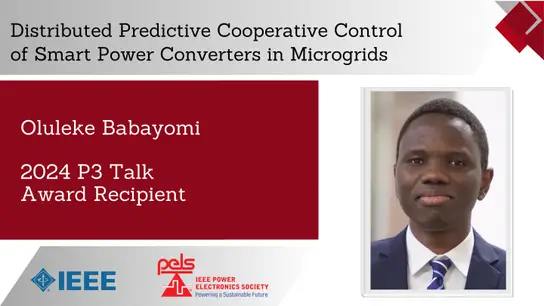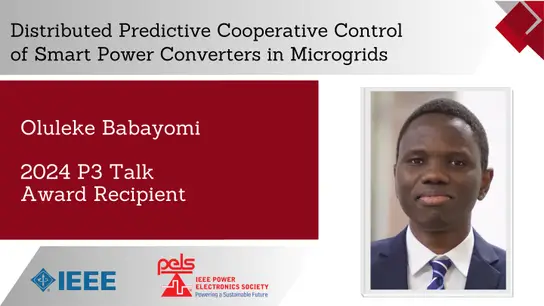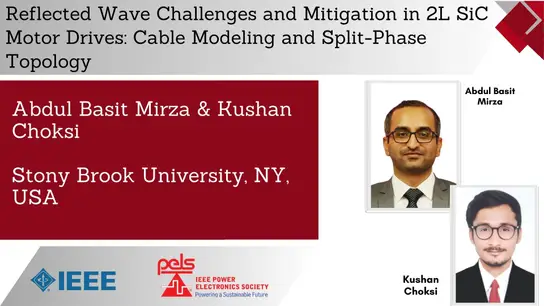Stability Analysis for Continuous Control-Set Model Predictive Control in Power-Electronic Converters-Slides
Alejandro Garces-Ruiz
-
Members: FreePELS
IEEE Members: $8.00
Non-members: $12.00Pages/Slides: 33
Abstract:Model-predictive control (MPC) has become popular due to its advantages in terms of performance and its capability to introduce constraints effortlessly. Two main approaches exist for MPC in power electronic applications, namely: Finite-control-setMPC (FCS-MPC) and continuous-control-set MPC (CCS-MPC). In the former, the control signals act directly on the switching states, while in the latter, the control signals are sent to a pulse-width modulator. In particular, CCS-MPC presents advantages such as constant switching frequency and simple implementation. However, the stability analysis is still an open research question. Stability can be ensured in MPC by imposing long horizons, terminal constraints, or penalization in the final step. This approach is helpful in various industries where the dynamic is slow, e.g., chemical applications. However, power electronics applications use an ad-hoc MPC with short horizons and simplified optimization models that can be implemented in real-time. Therefore, the stability analysis requires being carefully studied. This seminar presents recent results related to stability analysis of CCS- MPC for power electronic applications [1]. In particular, we discuss analytical and experimental results for DC/DC converters [2] in and its extension to AC converters [3]. Please note: This webinar will be held in Spanish.


